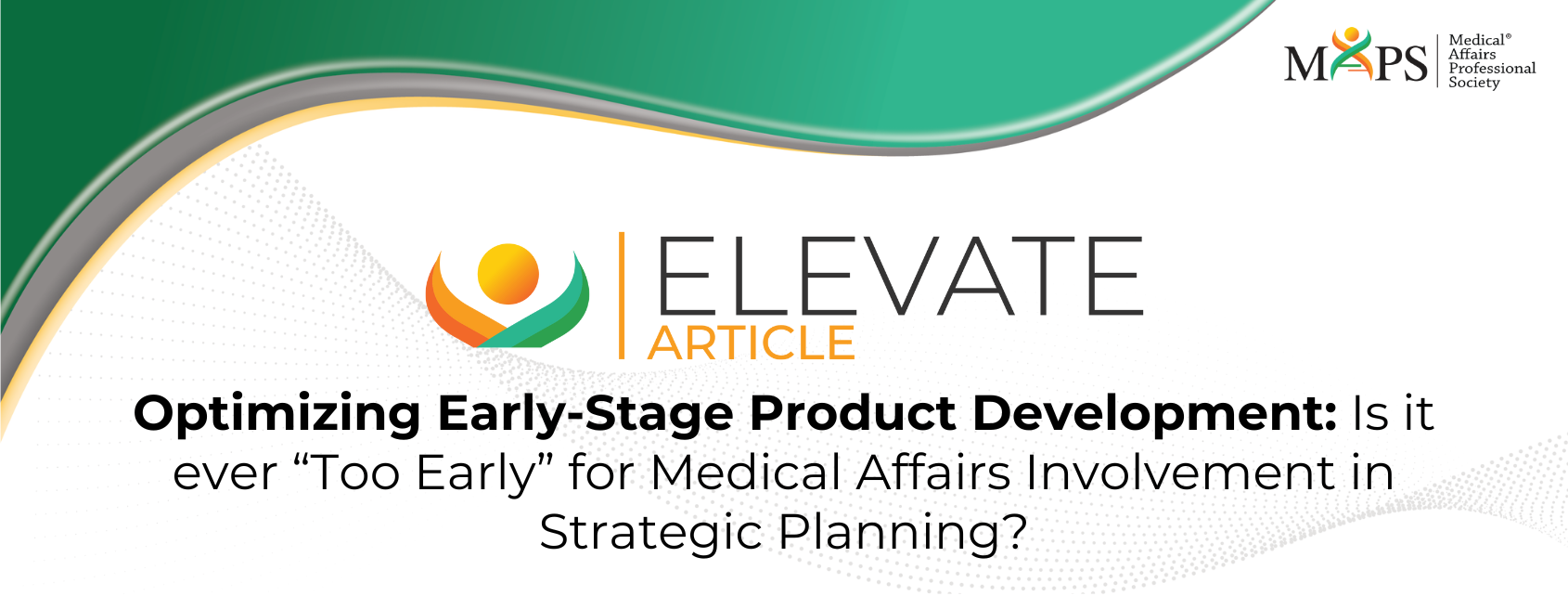Authors
Sally Alexandroff – Partner, MEDiSTRAVA
Wendy Kampman – VP, Medical Affairs, Vertex Pharmaceuticals
Amanda Henkel – Practice Area Lead, MEDiSTRAVA
Introduction
In an evolving healthcare landscape, the role of Medical Affairs is gaining recognition earlier in the product life cycle. Traditionally, Medical Affairs has been involved from Phase 2 and beyond. However, the increasing complexity of healthcare—characterized by specialized care, novel therapies, and stringent regulatory requirements—drives the need for input from Medical Affairs during the early pre-launch phases (discovery, preclinical, and Phase 1).
This shift highlights the importance of Medical Affairs even at the proof-of-concept stage, ensuring that new therapies are developed with a comprehensive understanding of the regulatory and clinical environment.
Early engagement of Medical Affairs can significantly enhance the chances of product success. By providing valuable insights and identifying critical issues and gaps, Medical Affairs teams can support both short- and long-term strategic planning and help inform key decisions.
This early involvement enables teams to identify and address potential challenges sooner in the product life cycle, create more comprehensive evidence generation strategies that support product differentiation, and prepare better for the market launch of new products.
Additionally, it encourages collaboration between Medical Affairs and other departments, such as Clinical Development, Precision Medicine, and Commercial/Marketing.
Figure 1. Factors influencing the decision to involve Medical Affairs at earlier stages of development.



